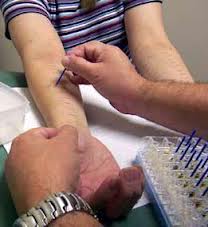 The gang was once again joined by Chris who led the show off with a segment about allergy tests. Adam then kept his promise from last week and looked into bottled water and how it compares to tap water. Darren then did a quick rant about the single cause fallacy, and Elan closed out the show exploring what ADIDAS really stands for.
The gang was once again joined by Chris who led the show off with a segment about allergy tests. Adam then kept his promise from last week and looked into bottled water and how it compares to tap water. Darren then did a quick rant about the single cause fallacy, and Elan closed out the show exploring what ADIDAS really stands for.
Download direct: mp3 file
If you like the show, please leave us a review on itunes.
 Show Notes
Show Notes
Allergy Tests
Scott Gavura at Science Based Medicine eviscerates IgG food intolerance tests
Controversial and inappropriate tests for allergies
Extensive and referenced list of inappropriate allergy tests
Slightly technical overview of allergies
More technical but comprehensive over of allegies
Technical review of blood tests for allergies (PAYWALL)
Bottled Water
U.S. Bottle Water Sales Are Booming (Again) Despite Opposition – News Watch
Why Drink Bottled Water? – Bottle Your Brand
Bottled vs. Tap: Which Tastes Better? – BU Today – Boston University
Tap water beats bottles in taste test – Telegraph
Why Does Bottled Water Taste Better? – World of Psychology
Frequently Asked Question about Bottled Water – Health Canada
Too Much Bottled Water Might Harm Kids’ Teeth: MedlinePlus
Bottled Water in Canada – Smart Canucks
ADIDAS
Wikipedia – ADIDAS History
ADIDAS Group – History
Abbreviations.com – ADIDAS








Hey, love the show, but had to correct one major error in the allergy test segment. Your guest host said “IgG isn’t produced during immune reactions, it’s actually produced in response to consuming food”
The first half of that statement is
exactly wrong, and directly contradicts his earlier, correct statements on IgG’s immunological roles. IgG is actually an indicator that an immune response is going well. The very first type of antibody produced is IgM, then if the immune response continues, IgG will typically be the next isotype of antibody to turn up. This is why IgG is used as a marker of past exposure to things like microbes or vaccines – its presence indicates an immune response successfully developed and matured, and then left behind long-lived IgG producing plasma cells and memory B cells.
(Continued…)
(Continued…)
This is what your guest host was referring to with “it’s actually produced in response to consuming food”, some data has suggested that people can produce IgG against allergens, which seems to indicate tolerance. Again, this is early data, so that link isn’t as concrete as you guest host made out.
In reading the SBM post I believe was his source, I find that it covered the information accurately, but just a little of the accuracy was lost in translation http://www.sciencebasedmedicine.org/index.php/igg-food-intolerance-tests-what-does-the-science-say/
Again, I love the show, and really like this guest host, but just felt this deserved a correction 🙂
Just finished listening to the segment and I have two more corrections:
When Elan asked if you could take multiple IgE tests to reduce the risk of false positives and Chris said you could, that was incorrect. The underlying assumption here is that the ~50% false positive rate is identical for all people without clinical symptoms of allergy. That is not correct.
The tests in question work by measuring the levels of antigen-specific IgE in the blood. If you have little to no anti-pollen IgE, you’re pretty much not going to be allergic to pollen. The higher the level, the more likely you are to present with clinical symptoms, but in reality there is no hard-and-fast level of specific IgE beyond which you *will* be allergic and bellow which you are not.
So, some people will have higher specific IgE levels but will not present with clinical symptoms of allergy, and these people will repeatedly get false positives. To give you an idea of the complexity of the issue, here’s a review article summarising some studies which tried to determine what IgE levels would be diagnostic of allergic disease http://www.ccjm.org/content/78/9/585.full (you may just want to scroll right down to the INTERPRETING COMMONLY ORDERED BLOOD TESTS FOR ALLERGY section)
(cont…)
(cont…)
And finally, immunotherapy for allergies is available outside of R&D and clinical trials (though research continues!), and has been for years. This includes sublingual immunotherapy as well as the more commonly discussed ‘allergy vaccines’ that Chris mentioned.
Again, love the show, keep up the great work guys.
Pingback: A skeptical take on allergy testing | Katatrepsis